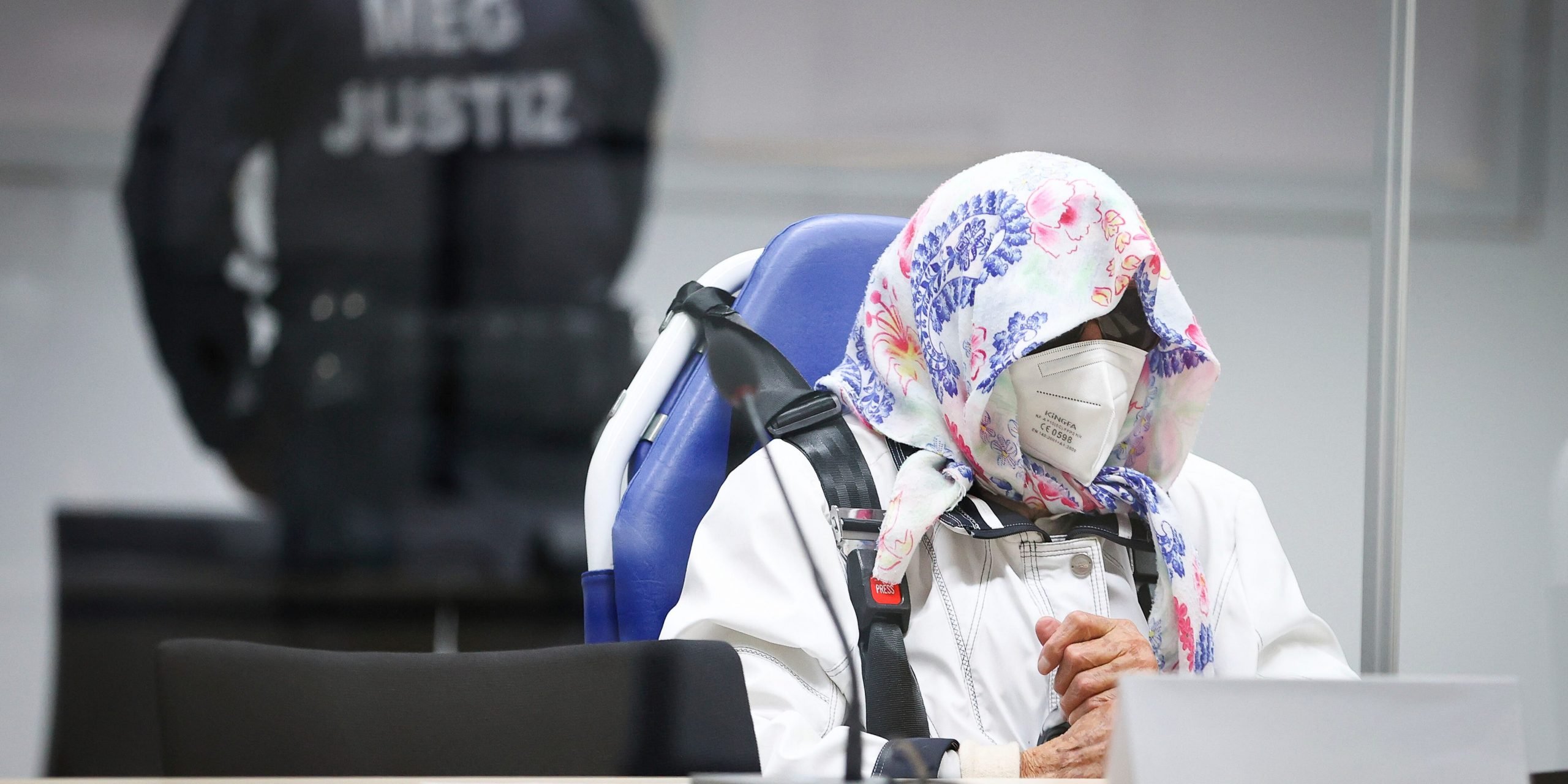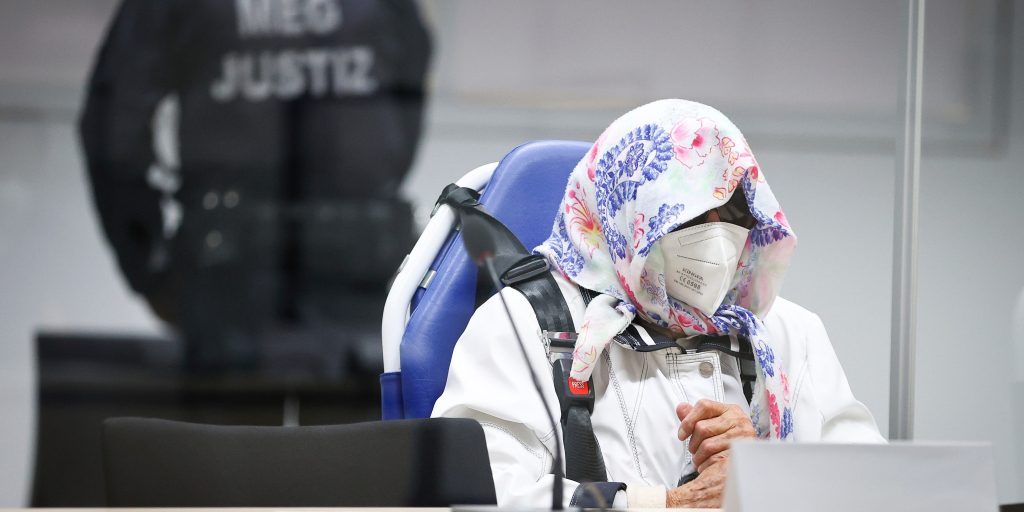
Christian Charisius/ AP
- A 96-year-old former Nazi secretary is on trial facing charges related to complicity in the murders of 11,000.
- Weeks ago, Irmgard Furchner tried to flee her retirement home as the trial was set to start.
- Furchner was a secretary at Stutthof camp in Nazi-occupied Poland, according to the Guardian.
The trial of a 96-year-old former Nazi secretary has begun in Itzehoe, Germany, weeks after the woman tried to flee her retirement home ahead of the trial, according to the Guardian.
Irmgard Furchner was formerly a secretary at the Stutthof concentration camp in Nazi-occupied Poland. She has been charged with aiding and abetting murder in 11,412 cases, as well as complicity in 18 cases of attempted murder. Her trial was brought after former camp guard John Demjanjuk was convicted in 2011 related to his complicity in the murders of 28,000 people.
The Guardian reported that the court is using this legal precedent – defining Furchner's role in aiding and abetting murders during the Holocaust – to try this case.
According to Reuters, Furchner worked at the camp between 1943 and 1945, and between 1939 and 1945 at least 65,000 people died in the camp, largely due to the gas chambers, starvation, and disease.
Furchner is being tried in a juvenile court because she was 18 when she started working in the camp and during the alleged crimes she was involved with, according to the Guardian.
Her trial is being filmed for documentary purposes and is one of several ongoing trials of elderly former Nazi officials.
In September, when the trial was originally set to begin, Furchner tried to escape the retirement home she lives at and took a taxi to Hamburg. She was arrested hours later and police put an electronic tracking wristband on her, according to the report.
During the trial, the prosecution alleged that Furchner as a secretary who took down what then-commandant, Paul Werner Hoppe, dictated, "was contributory to the entire killing operation" at the camp, according to the Guardian.
The prosecution also alleged that there is no way that Furchner would not have known about what occurred, including the practice of sending prisoners to a room where they were told that they would have their height measured while SS officers instead shot them in the head from a lookout in a separate room.
The report added that witness accounts of the gas chambers illustrated "how those trapped inside screamed in agony, clawing at their skin and tearing out their own hair due to the pain," and prosecutors told the court that between the noises, smells, and communications related to the gas chambers it would have been "unavoidable" for her to not know what was happening given the small size of the camp.
Furchner's lawyer said that unlike other former Nazis on trial, Furchner recognized the Holocaust was real but alleged that she was not personally guilty.
There are five co-plaintiffs in the case from the US, France, and Austria who will share evidence related to Furchner over the course of the trial. The plaintiffs also requested on Monday that the court reconsider a request for state prosecutors to visit the Stutthof memorial site for evidentiary purposes, which the court had initially rejected.
"This source of knowledge cannot really be replaced by other means of evidence," the plaintiffs' lawyer, Christoph Rückel, said.

